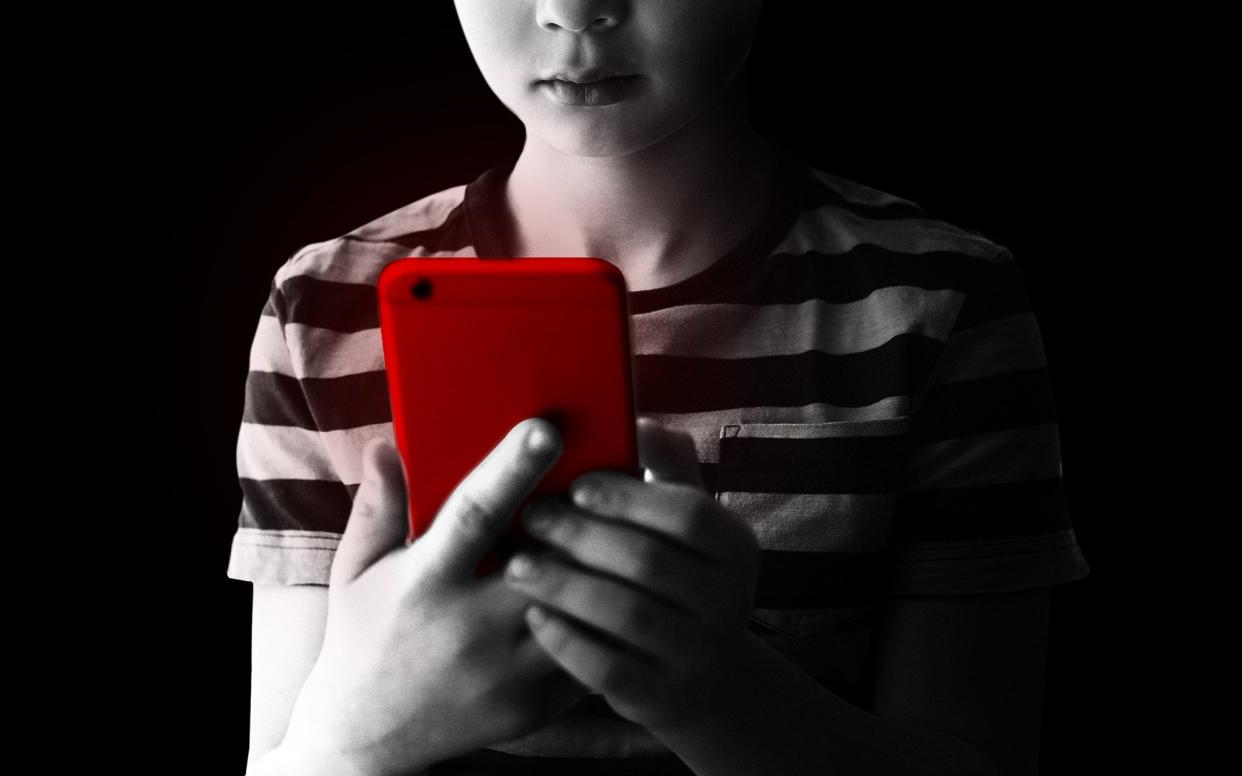Listen up, Apple and Samsung – I’ve solved the smartphone crisis for the young

How to wean our children off their smartphones? Bearing in mind we are the ones who got our offspring addicted in the first place; we bought them the mobiles and we pay for their rolling contracts, so it’s a bit rich that we’re now complaining bitterly about how they use them.
The truth is that as soon as you give your son a Samsung Galaxy you effectively end his childhood. The moment your daughter gets an iPhone she will be swept away by a new peer group.
But we are where we are – and what is parenthood if not a painful process of revisionism followed by the constant redrawing of boundaries? We have reached a point of inflection in a groundswell of concern among adults about the mental health impact of phones on children – and not before time.
An Ofcom report published last year revealed more than half of eight- to 11-year-olds (55 per cent) owned a mobile phone, as did a fifth of children aged three to seven. Come secondary school, virtually every child gets a phone.
Yet excessive use by children, teenagers and young adults has been linked with impaired cognitive functions and mental health problems. Some studies find frequent mobile phone use among adolescents predicts a higher incidence of symptoms of anxiety and depression – something almost every parent can vouch for anecdotally.
Long before Esther Ghey, the grieving mother of murdered teenager Brianna, spoke out this week about the shortcomings of the Government’s new Online Safety Act, which aims to protect youngsters, she called for smartphones to be banned for under-16s.
Earlier this month, two British mothers set up a WhatsApp group called “Parents United for a Smartphone-Free Childhood”, half-assuming it would just be the two of them, talking to each other. Within days, so many people had joined that there are now 50 groups across the country.
And now actress and campaigner Sophie Winkleman, who is married to Lord Freddie Windsor, second cousin to the King, has said that schoolchildren should be given “brick” phones instead of smartphones to protect them from social media.
“Something needs to happen from higher up,” said the mother of two. “I don’t know how anyone can defend social media and smartphone use for under-16s.”
I agree with her wholeheartedly – but the first thing that needs to happen is to stop using the term “brick”, along with “ban”. Anything that smacks of punishment must be wiped from the discussion.
Our children, understandably, don’t want us to take their handsets away, so we need to be smarter and replace smartphones with something shinier and more exciting. Besides, vested interests mean huge behemoths have no incentive to curtail their businesses for moral reasons.
So here’s a way of satisfying both kids and corporations – may I present you with the “y-phone”: a sleek, slick and reassuringly expensive gadget that has so many whizzy features – such as incredible-quality cameras or high-end music production apps – that they won’t have time to scroll. Unlike grown-ups’ boring handsets, the y-phone (yes, I’m quite pleased with the name; I’d trademark it if I knew how) reflects young people’s real interests.
I get that developing the y-phone won’t be cheap – but neither is the latest iPhone. But most importantly, the phones would be incapable of accessing social media sites, porn and, of course, the dark web. Now I know that a lot of this access can already be turned off on current smartphones should parents wish, but again, that’s “banning” and “restricting” – two words that teenagers do not want to hear. My y-phone will not require parental control.
It’s as much about breaking the habit as anything else. Like it or loathe it, and that’s assuming you notice it, our phones have become extensions of us, which is why we need to intervene by preventing young people seeking affirmation, trolling one another, losing themselves down virtual rabbit holes that can lead to the most devastating outcomes.
Brianna, who was transgender, was 16 when she was murdered last February. Her mother admits her daughter was addicted to her phone, which had an effect on her self-esteem. One of Brianna’s killers, Scarlett Jenkinson, who was just 15 at the time, had been able to access videos of torture and murder on encrypted internet browsers.
We all know that extreme cases make for bad law, but underpinning all these disparate calls for action is a shared conviction that unless adults step in, we will consign another generation to poor mental health, stress and anxiety fuelled by algorithms.
The moment for hand-wringing and helplessness is past. We can’t pull the plug on the internet or switch off the Wi-Fi – but we can reinvent the mobile and give youngsters a feeling of ownership rather than deprivation. The day tweenagers sneer at their dad’s fuddy-duddy new iPhone will be a day to celebrate.

